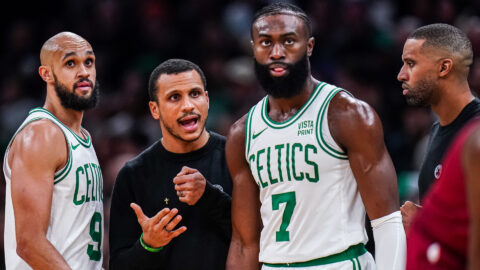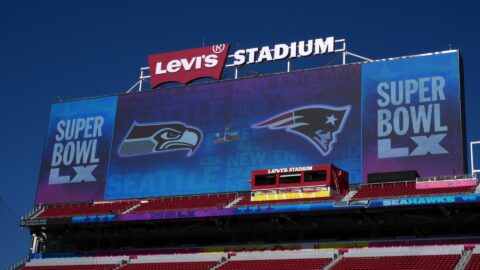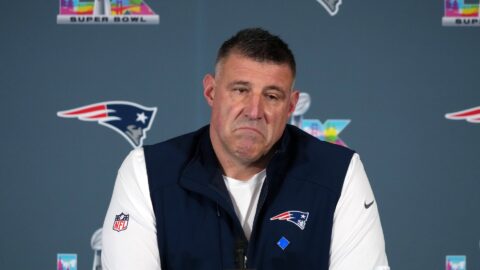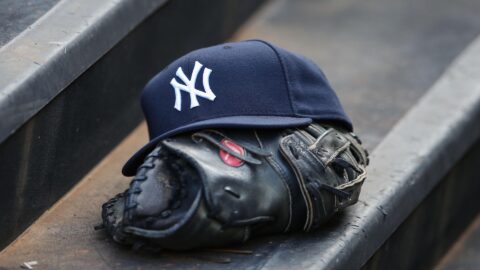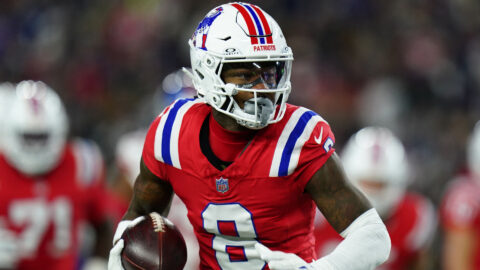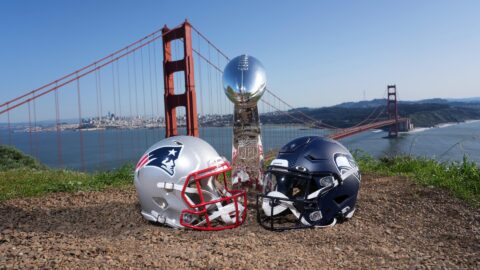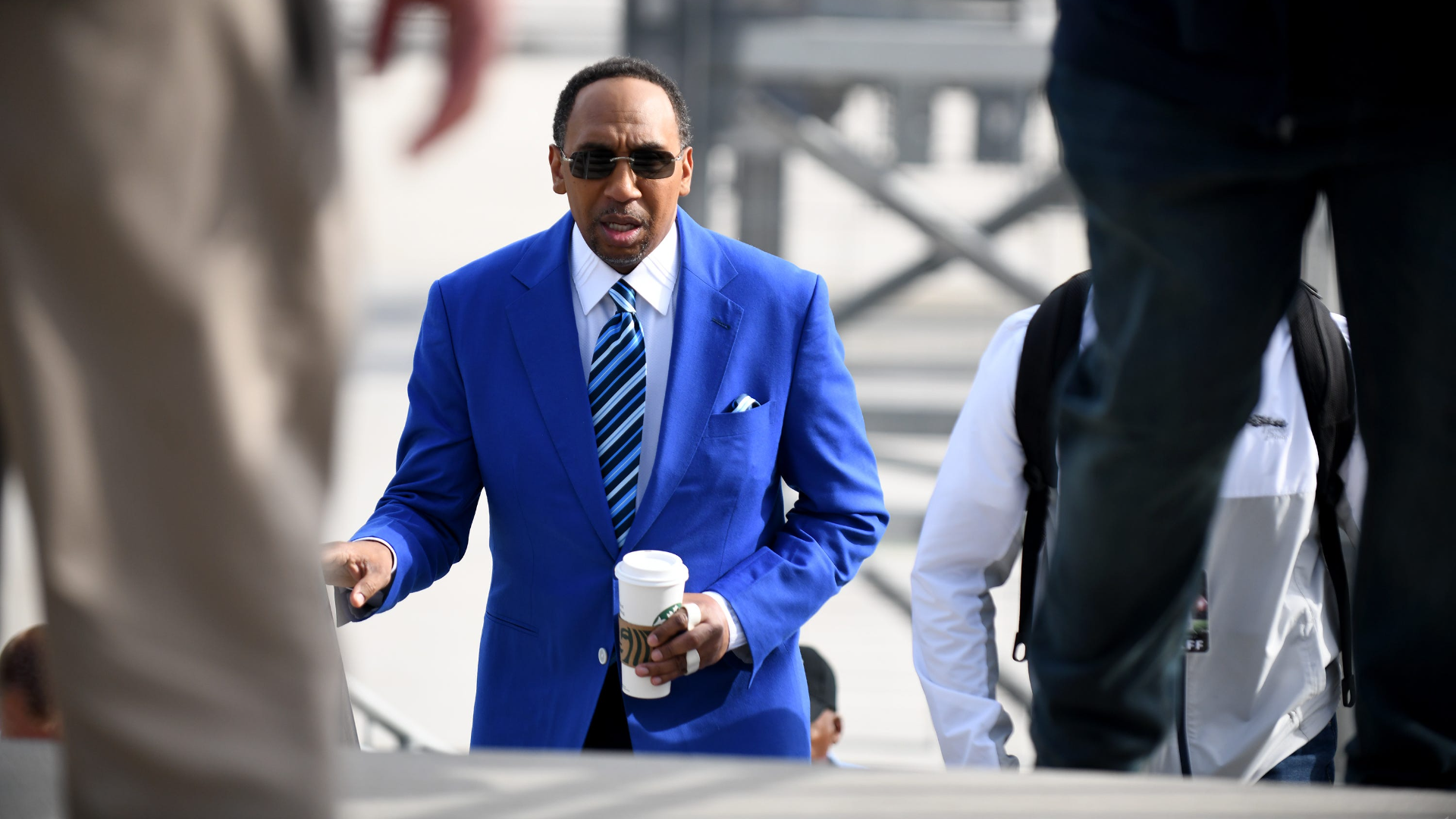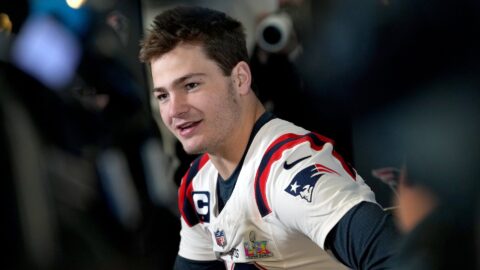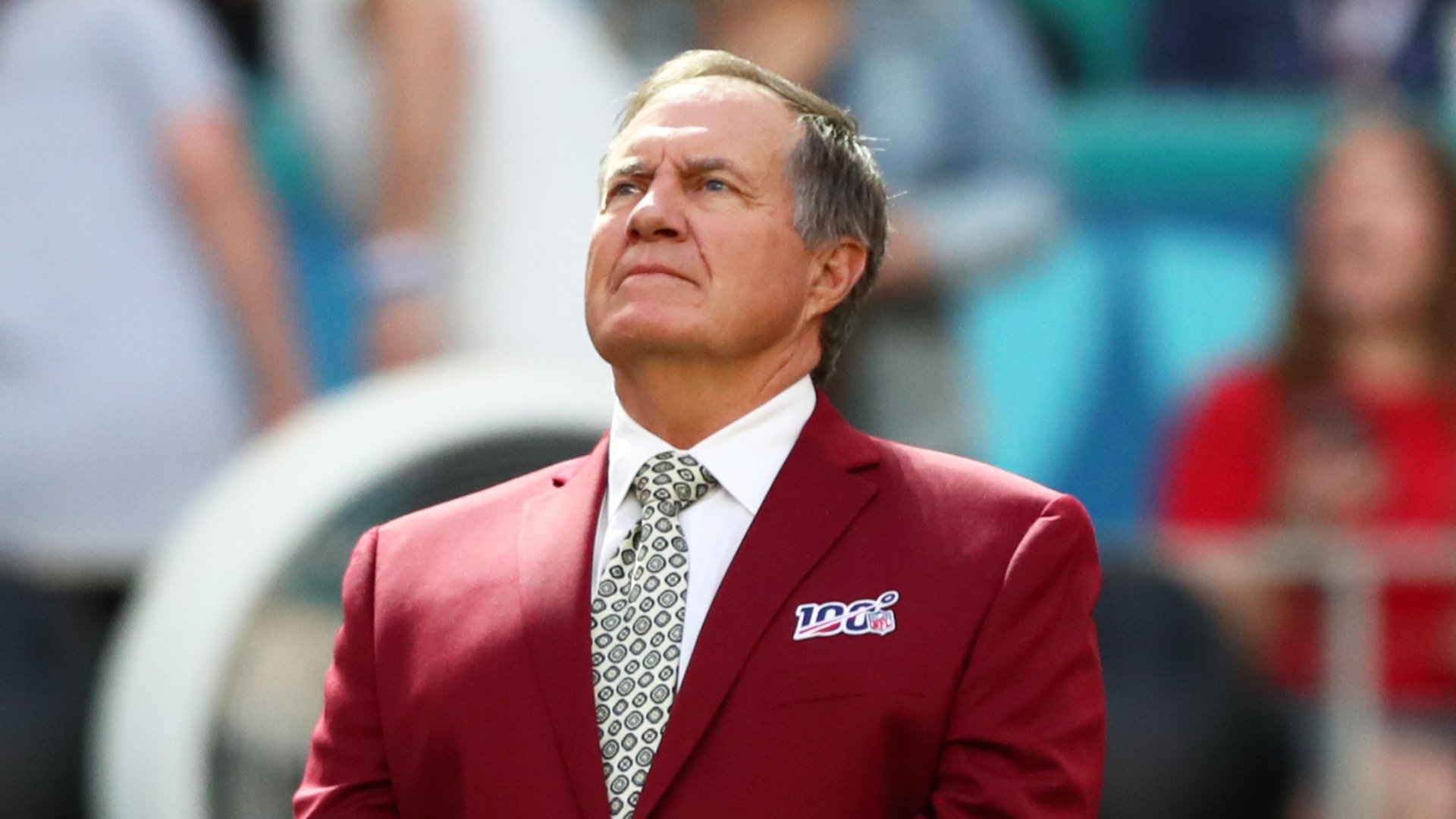The Patriots have one of the most valuable assets in all of professional sports: a quarterback on a rookie deal.
However, they are egregiously failing to take full advantage of the situation and continue to fall behind teams across the league who have made the most of similar spots.
Mac Jones is getting set to enter his third NFL season. The Alabama product saw varying levels of success in his first two seasons. He contended for Rookie of the Year in 2021 before falling on his face last year. He enters this pivotal campaign as the apparent No. 1, but any early struggles could reheat the Bailey Zappe debate.
There's a lot of pressure on Jones to get back on track and take a giant leap in his progressions. Quarterbacks of a similar age and experience across the NFL are doing just that, and Jones is in danger of being left behind. But is that really Jones' fault?
Story continues below advertisement
The Patriots have not done nearly enough to build around Jones, making the most of an enviable financial situation.
Quarterbacks on rookie deals sign extremely affordable four-year deals with teams having the ability to exercise the fifth-year option for QBs taken in the first round. A large majority of the best teams are the ones who use those savings to build around the highly touted QB. Ten of the last 22 Super Bowl starting quarterbacks did so on rookie deals. Five of the 12 that didn't were Tom Brady.
So, for the Patriots to lose out on a player like DeAndre Hopkins -- seemingly for no other reason than money -- is really a tough look. Hopkins is just a symptom of the problem. New England set a year of Jones' progression ablaze by saddling him with Matt Patricia and Joe Judge in 2022, and they simply haven't done enough in the draft, trade market or free agency to give him game-changing talent (despite Robert Kraft's reported desires).
Story continues below advertisement
After missing out on Hopkins, the Patriots enter the season with a wideout corps consisting of JuJu Smith-Schuster, DeVante Parker, Kendrick Bourne and Mike Gesicki. The offensive line has major question marks at the tackle position. Bill O'Brien, at least, is an upgrade running the offense.
It's even more evident when compared to other young quarterbacks across the league, especially those still on rookie quarterbacks.
For example:
Story continues below advertisement
Jalen Hurts (Philadelphia)
-- Eagles traded for receiver A.J. Brown and drafted DeVonta Smith up top.
-- Philly's offensive line is one of the best in recent NFL history, led by Jason Kelce and Lane Johnson
-- Eagles coach Nick Sirianni is an offensive guru, who oversaw a team that went 14-1 in Hurts' starts on the way to winning the NFC.
-- Hurts is a slightly different case as a second-round pick, but that in some ways makes it even more impressive.
Tua Tagovailoa (Miami)
-- Dolphins drafted Jaylen Waddle sixth overall in 2021 and then traded for Tyreek Hill last offseason. They also signed Raheem Mostert last year and traded for Jeff Wilson midseason.
-- Miami turned to Kyle Shanahan disciple, Mike McDaniel, as head coach. The Dolphins went 8-5 in Tagovaloia's starts, scoring at least 29 points in six of those games.
-- What does it say that Miami was willing to trade Parker to New England, a division rival, and was OK letting Gesicki walk to Foxboro, too?
Justin Herbert (Los Angeles Chargers)
-- Herbert might be the most interesting case. He aces the eye test, but has arguably the worst supporting cast of the three -- and the Bolts are just 25-24 for his career.
-- That's not to say they haven't tried to build around him. Austin Ekeler, even at the back end of his prime, would be arguably the Patriots' best skill player. Josh Palmer, Keenan Allen and Mike Williams would also be New England's top wideout.
-- LA finally got smart and fired Joe Lombardi, replacing him with Kellen Moore
Story continues below advertisement
These three are the most recent examples, of course, but this trend is nothing new. Patrick Mahomes won a Super Bowl in his third season, throwing to Travis Kelce, Sammy Watkins and Tyreek Hill. Lamar Jackson and the Ravens went 11-5 in 2020 with Mark Andrews as an All-Pro security blanket and an offensive line buoyed by Orlando Brown. Buffalo went 11-3 in Josh Allen's 2020 starts with Brian Daboll calling the shots for an offense that featured recently acquired Steffon Diggs and two Pro Bowlers on the line. Jared Goff is nothing special, but the 2019 Rams went to the Super Bowl in Sean McVay's offense with Goff spreading it around to Todd Gurley, Robert Woods and a young Cooper Kupp. Even the 2018 Cowboys went 10-6 with Dak Prescott at QB and Jason Garrett at head coach, in large part due to an elite offensive line and game-changing skill players.
All of those quarterbacks were in their third season.
This trend isn't going away, either. Trevor Lawrence is entering his third season, and even after a year with Urban Meyer stunted his growth, he looks like an elite QB in the league now. Sure, he was the No. 1 pick, but the Jags are taking no chances, adding Calvin Ridley to the mix a year after signing Christian Kirk to a deal that probably was mocked in and around Gillette Stadium. Even the Bears -- the Bears! -- look like they're heading in a better direction with Justin Fields, with Ryan Poles trading for Chase Claypool and D.J. Moore while building the offensive line through the draft.
Story continues below advertisement
There probably is more than one way to build a contender in the NFL, and maybe the defense makes up for any offensive deficiencies the Patriots might have. But in a loaded division and conference filled with high-octane offenses, the Patriots might find themselves playing catch-up quite a bit. That's a dangerous game to play.
Ultimately, the inability or unwillingness to make the most of Jones' most valuable years might be what sends the Patriots back to the draft at the QB position. And if there's absolutely no sign of improvement, it might even cost Bill Belichick his job.
Featured image via Eric Canha/USA TODAY Sports Images

